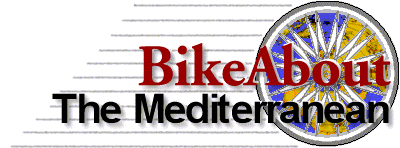
"For most people, the Mediterranean today is a postcard in the mind, a souvenir of where their modes of thought and taste began," wrote Robert Fox in his recent book, The Inner Sea: The Mediterranean and Its People. Trace the shores of the Mediterranean and you will find evidence of many of the defining moments and places in history. Today, it may no longer be the dominant area it once was, but the Mediterranean still touches myriad political, economic and cultural trends shaping the late 20th-century world--factors with their antecedents in a long and often stormy past.
The people who inhabit the semi-arid shores of the Mediterranean were once united in a common world view. As the name "Mediterranean" suggests, they saw themselves as living at the center of the world. And not without reason--this simple tideless sea that links three continents has seen everything: the rise and fall of civilizations; the making and breaking of religions; the creation and decline of cities; the learning and loss of alphabets, of culture, of lifestyles; and an ongoing history of political turmoil.
Even in recent history, with slowly resolving civil disturbances in the Balkans and Algeria; difficult reconstructions in Lebanon, the West Bank and Gaza; instability in Kosovo, Macedonia, Turkey, Israel, Egypt and Cyprus; and an internationally ostracized Libya, the shores of the Mediterranean have been explosive. Indeed, while the world's attention has turned more to the Pacific, tensions in the Mediterranean have not subsided.
The sea of communication is becoming the sea of segregation; the sea of multiculturalism is giving way to religious, ethnic and national stratification. Divisions are becoming more virulent and antagonisms more extreme between East and West, North and South, rich and poor, developed and developing, old and young, secular and religious, Muslim and Christian and Jew, the countries of the Maghreb (North Africa) and the European Union and the Middle East.
Still, many scholars and politicians believe that it is possible to imagine a time when we will move beyond the geopolitical ruptures, ideological differences, reciprocal exclusions, imaginary truths, and other antagonistic relationships that have marked the Mediterranean. For this to happen, greater publicity must be given to the many institutions, scientific exchanges, and valuable scholastic publications making positive steps toward reawakening a more integral sense of the Mediterranean region.
Fernand Braudel, one of the Mediterranean's greatest historians, said, "The Mediterranean is what man makes it." Pioneers believe that the Mediterranean could have a common future, that it could once again become a creator of civilizations.
BikeAbout agrees.
About BikeAbout | Mediterranean Map | BikeAbout Partners | Resource Library
Copyright 1997-2004 BikeAbout. All rights reserved. Please use our online form to send us your comments or offer support.